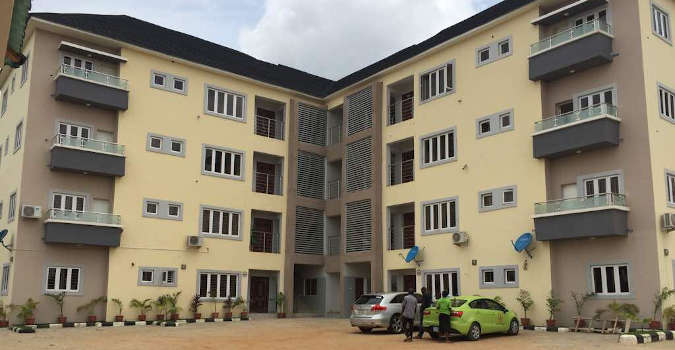The effect of the COVID-19 pandemic coupled with the general decline in purchasing power by Nigerians has led to significant reduction in demand for large and expensive luxury homes while demand for one-bed and two-bed apartments is on the increase.
Also, residential vacancy rates continue to increase across the country with landlords adopting a more “tenant-friendly” stance, the 2020 report on the Nigeria Real Estate Market, by an estate investment firm, Northcourt, has revealed.
The report released last week listed areas where vacancy rates have moved up in Lagos, Abuja and Port Harcourt.
The locations are mostly highbrow areas of Ikeja GRA, Ikoyi, Lekki, Magodo Phase 11 in Lagos; Apo, Gwarinpa, Jabi, Maitama, Wuse 2 in Abuja, as well as Old GRA, GRA phases one, two and three, Elenlewo, Peter Odili, among others in Port Harcourt.
According to the report, a recent survey indicated that most residential occupiers in Lagos are renters with only 29% confirmed to be homeowners.
“High-end areas in Lagos (Ikoyi, Victoria Island and Banana Island) and Abuja (Maitama and Asokoro) have the most luxury houses even though a steady proportion of these have been empty for the last 5 years.
“Luxury sale prices in Victoria Island and Ikoyi range between N160m – N200m and N250m – N300m respectively for the average 3- bed apartment. Banana Island rentals average N15m and N25m respectively per annum.
The report further noted that due to the decline in purchasing power, the developers “are re-designing projects to provide smaller condos.”
It projected that the next few quarters would likely see a delay in the construction of luxury villas “as the world reconfigures its supply chain and adapts to increased construction costs.”
It added, “Construction activity has continued in a few areas as Stadium road in Port Harcourt, Wuse 2 in Abuja and Ibeju Lekki in Lagos – even though completion dates have been pushed back.”
The report made case for the “strengthening of the production of locally made construction materials” to reduce the impact of high cost of construction materials.
It added that the “normalisation of remote working would compel the conversion of residential apartments to home offices.”
The report, however, noted that residential real estate remains the mainstay of Nigeria’s real estate market, saying land is also in demand and may remain the real estate investment “that is recession-proof.”
But it further observed that “the inability to carry out online title verification and registration hinders the growth in transaction volume.”

 Join Daily Trust WhatsApp Community For Quick Access To News and Happenings Around You.
Join Daily Trust WhatsApp Community For Quick Access To News and Happenings Around You.


